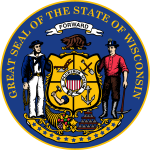
Nelson Webster Dewey was an American lawyer, land speculator, politician, and Wisconsin pioneer. He was the first Governor of Wisconsin, and also served in the Wisconsin Senate and served several years in the Wisconsin Territory government before Wisconsin achieved statehood. He was also particularly important in the development of Cassville, Wisconsin, which he had at one time hoped to make the state capitol.
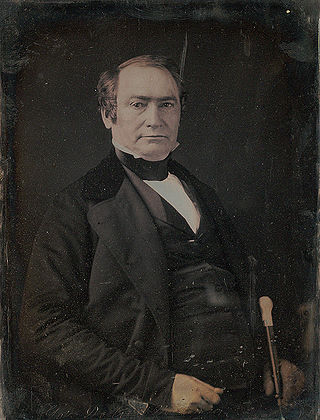
James Duane Doty was a land speculator and politician in the United States who played an important role in the development of Wisconsin and Utah Territory.
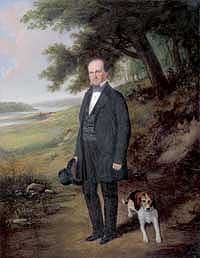
Morgan Lewis Martin was a delegate to the United States House of Representatives from Wisconsin Territory during the 29th United States Congress (1845–1847). He also served as a member of the Wisconsin State Senate and Wisconsin State Assembly, and served as a county judge in Brown County, Wisconsin.
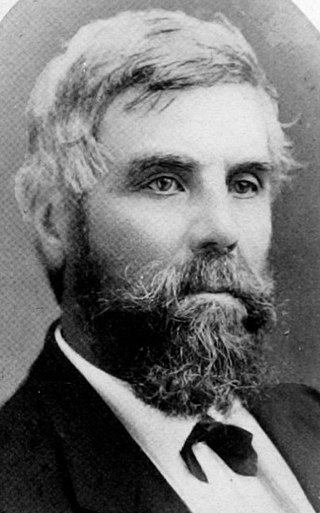
John Hubbard Tweedy was a delegate to the United States Congress from Wisconsin Territory from March 1847 to May 1848 being elected from the Whig Party. He was also the Whig Party nominee in first Wisconsin gubernatorial election, where he lost to Nelson Dewey.

Edward Eastman was an American merchant, politician, and pioneer settler of Oshkosh, Wisconsin. He was active in civic and territorial affairs, and known as a Democrat and Free Soiler. In 1847 he was one of a partnership approved by the territorial legislature to build the first bridge across the Fox River in Oshkosh.

Hiram Barber was an American pioneer, politician, and businessman in Dodge County, Wisconsin.

The 1846 New York state election was held on November 3, 1846, to elect the governor, the lieutenant governor and two Canal Commissioners, as well as all members of the New York State Assembly and eight members of the New York State Senate.

The 1847 New York state election was held on November 2, 1847, to elect the lieutenant governor, the secretary state, the state comptroller, the attorney general, the state treasurer, the state engineer, three Canal Commissioners and three Inspectors of State Prisons, as well as all members of the New York State Assembly and the New York State Senate.

William Rudolph Smith was an American lawyer, politician, pioneer, and historian from Pennsylvania who served as the 5th Attorney General of Wisconsin, the first President of the Wisconsin Historical Society, and the first Adjutant General of Wisconsin.
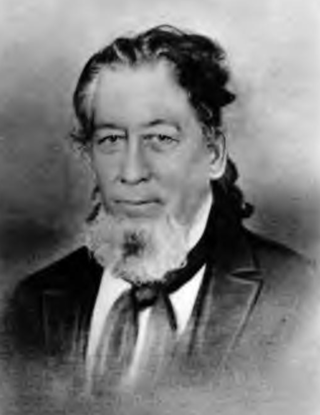
Alexander Botkin was an American lawyer, politician, and pioneer settler of Dane County, Wisconsin. He served one term each as a member of the Wisconsin Senate and Wisconsin State Assembly.
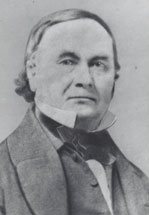
Henry Samuel Baird Jr. was an Irish American immigrant, Wisconsin pioneer, lawyer, and politician. He was the first Attorney General of the Wisconsin Territory, appointed by territorial governor Henry Dodge. He is known as "Father of the Wisconsin Bar," and was said to be the first practicing lawyer in the Wisconsin Territory.

Warren Chase was an American pioneer, farmer, reformer and politician. He served in the state senates of Wisconsin and California, and was a candidate for Governor of Wisconsin in the election of 1849.
Jonathan Daugherty was an American storekeeper from Rosendale, Wisconsin who spent two one-year terms representing Fond du Lac County as a member of the first two Wisconsin State Assemblies, the first as a Whig, the second as a member of the newly organized Free Soil Party.

The 1848 Wisconsin gubernatorial election was held on May 8, 1848. This was the election for the first Governor of Wisconsin, which became a U.S. state that year, as it was held concurrent with a public referendum to ratify the Constitution of Wisconsin.

The 1853 Wisconsin gubernatorial election was held on November 4, 1853. Democratic candidate William A. Barstow won the election with 55% of the vote, winning his first term as Governor of Wisconsin. Barstow defeated Free Soil Party candidate Edward D. Holton and Whig candidate Henry S. Baird. This would be the last Wisconsin gubernatorial election in which there was a Whig candidate on the ballot.

The 1857 Wisconsin gubernatorial election was held on November 3, 1857. After incumbent Governor Coles Bashford declined to seek re-election, Republican Party candidate Alexander Randall narrowly defeated Democratic candidate James B. Cross by a margin of just 118 votes.

The 1859 Wisconsin gubernatorial election was held on November 8, 1859. Republican Party incumbent Governor Alexander Randall won re-election with 53% of the vote, defeating Democratic candidate Harrison Carroll Hobart.
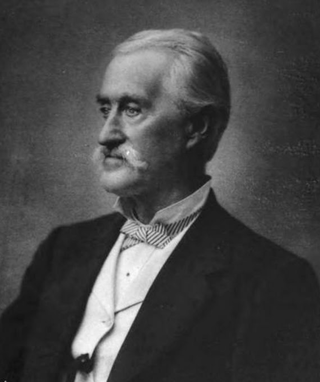
Alexander Lynn Collins was an American lawyer, judge, and politician. He was an important leader of the Whig Party in the early years of Wisconsin, serving as party chairman, nominee for United States Congress, for United States Senate, and for Governor of Wisconsin. He also served as a Wisconsin Circuit Court Judge and a member of the University of Wisconsin Board of Regents. In historical documents, his middle name is sometimes spelled "Linn" and he is sometimes referred to as "A. L. Collins."

The 1850–51 Massachusetts gubernatorial election consisted of an initial popular held on November 11, 1850 that was followed by a legislative vote that was conducted on January 11, 1851. It saw the election of Democratic Party nominee George S. Boutwell. The ultimate task of electing the governor had been placed before the Massachusetts General Court because no candidate received the majority of the vote required for a candidate to be elected through the popular election.

